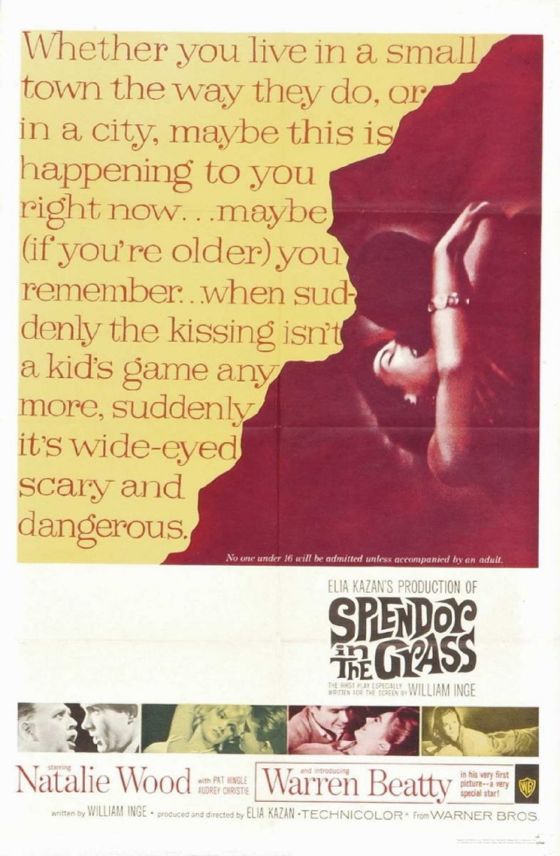
The hinge of the plot of Splendor In the Grass — two young lovers all but destroyed by socially enforced sexual repression — wouldn't work today. That kind of sexual repression no longer exists. I'm a little surprised that the plot device worked in 1961, when the film was made. Though the film is set in the 1920s, its tale of misunderstood teens was meant to speak to audiences of its time, and it did.
1961 was just before the sexual revolution, but it was hardly the Victorian era. Yet the film is on one level a passionate tirade against Victorian sexual mores, which are viewed as pathological, anti-life. This was a common modernist narrative, but it had sort of made its point by 1961, even if it had not been universally endorsed by the mainstream culture.
Was the film exaggerating the sense of sexual repression felt by
young people in 1961? I suspect so. But why?
William Inge, the author of the
screenplay, was a gay man tormented by his gayness. Surely his view of
the repression of heterosexual passion was influenced by his rage
against the repression of homosexual passion — so much stronger in
1961 than we can easily imagine today. Kazan, when he directed the
film, was living a double life — as a married man with a family and as a
libertine engaged in a series of sexual adventures outside of
his marriage. From the evidence of his autobiography, he was angered by
the guilt he felt about this — seeing it as something imposed
on him from the outside by an overly rigid society.
There is an element of special pleading in the film — a sense that Inge and Kazan are addressing personal issues indirectly through their sympathy with the tormented teens.
Curiously, neither this undertow of dishonesty nor the antiquated plot device diminishes the power of the drama in the 21st Century. Victorian sexual repression is just a premise, like the feud between the Capulets and the Montagues — it works today like a Maguffin. What's central is the confusion of youth and the brutal insensitivity of adults. The film is about the destruction of dreams, and surviving the destruction of dreams.
Those are timeless themes, of course, and the film makes us feel them on a deep level. Are kids today, in an era of sexual license, any less confused by life and sex than Bud and Deanie? Are adults any more sensitive to their anguish? I doubt it very much. That's why the film still speaks to us.
